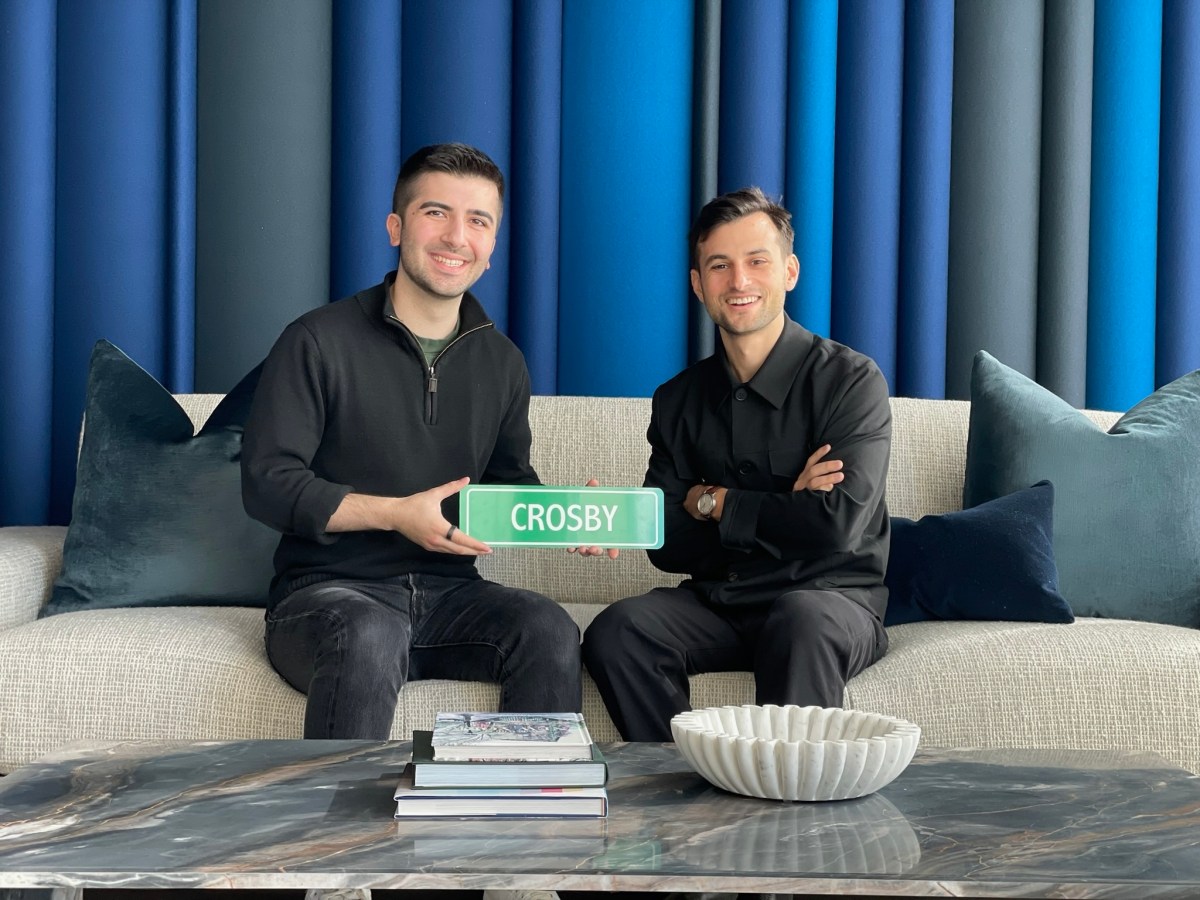
The tech industry talks a lot about how AI is going to transform work. Legal startup Crosby, which just came out of stealth with a $5.8 million seed round led by Sequoia, is perhaps the most extreme example of what’s coming that we’ve seen to date.
Crosby isn’t just making AI software for lawyers – although it is doing that. Crosby is an actual law firm using AI to provide legal services at a speed never before possible.
Rather than selling tech to lawyers, Crosby has hired lawyers who use its internally developed AI software. It sells contract-review legal services, largely to startups. The company is currently promising that its AI software, with human overseers, can review a new client contract in under an hour. And it hopes to get that down even faster – perhaps to just minutes, according to its co-founder CTO John Sarihan, who spoke with TechCrunch.
Ryan Daniels, Crosby’s co-founder and CEO, is a lawyer himself and the son of two law professors. He cut his teeth at Cooley, one of the biggest firms that represents the tech industry. He then spent the better part of a decade doing general counsel work for startups.
“My last company, where I was the only legal person, grew from about 10 to 100 people, and I found that most of the time that I was spending on legal was for our contracts, sales agreements, [and] MSAs,” Daniels said, referring to the part of a customer contract known as a master service agreement.
Contract negotiations and legal review were such a bottleneck at the company that they were the “reason why we weren’t growing as fast as we wanted to.”
Today, contract negotiation remains a human-to-human process, which can take weeks or months.
While there are a growing number of AI tools that help lawyers speed up parts of their work, Crosby’s founders believed that the only way to use AI to really change the legal industry, was by “building our own law firm in order to own the entire process, end to end,” said Daniels.
Sarihan, who was an early employee at Ramp, set about hiring software engineers from the startup world, while Daniels began hiring lawyers. Today the startup employs about 19 people, including the founders.
“The innovation here is in the tech and in the people,” Sarihan said.
The firm soft launched in January, the co-founders said, and it has already reviewed over 1,000 customer contracts — like MSAs, data processing agreements, and non-disclosure agreements — for fast-growing startups like Cursor and the sales automation startups Clay and UnifyGTM.
Sequoia’s Josephine Chen and Alfred Lin led the seed round with participation from Bain Capital Ventures and a bunch of angels like Ramp co-founders Eric Glyman and Karim Atiyeh, Opendoor co-founder Eric Wu, Casetext co-founder Jake Heller, Instacart co-founder Max Mullen, and the co-founders of Flatiron Health, Zach Weinberg and Gil Shlarski.
The stars aligned for Crosby to land Sequoia as an investor. Chen knew Sarihan from Ramp, and she had previously met Daniels through the co-founder of Venue, an AI procurement startup she had backed and that was acquired by Ramp last year.
When the co-founders pitched their idea to Chen, she asked Sequoia’s in-house lawyer about the idea, and that lawyer, Cindy Lee, knew Daniels from her time at Cooley.
“When we think about seed investing, for us, it’s probably 70% around the team and 30% around the market, market dynamics, and the insight that the founders have there,” Chen explained. Given all the connections she already had to the founding team and that legal work is a $300 billion industry, Chen was down to disrupt it with Crosby.
“We had seen, even in our own portfolio [companies], how negotiating contracts can be a bottleneck for growth,” Chen said. Legal, in her view, is “a bull’s-eye case for the use of LLMs.”








